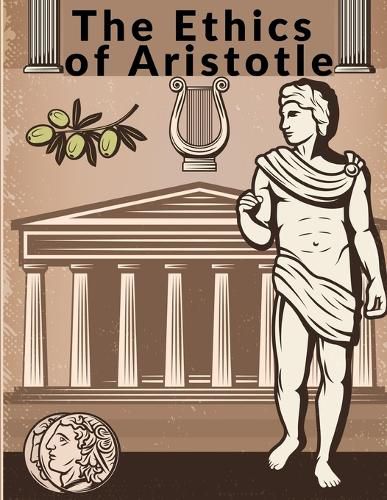Readings Newsletter
Become a Readings Member to make your shopping experience even easier.
Sign in or sign up for free!
You’re not far away from qualifying for FREE standard shipping within Australia
You’ve qualified for FREE standard shipping within Australia
The cart is loading…






This title is printed to order. This book may have been self-published. If so, we cannot guarantee the quality of the content. In the main most books will have gone through the editing process however some may not. We therefore suggest that you be aware of this before ordering this book. If in doubt check either the author or publisher’s details as we are unable to accept any returns unless they are faulty. Please contact us if you have any questions.
It seems clear that happiness is the ultimate goal to which human life aspires. But what is the true essence of happiness?
This thorny question is faced by Aristotle (384-322 B.C.) in the Nicomachean Ethics.
Among the many values that can be attributed to the philosopher of Stagira (Macedonia) is this text belonging to the last period of his production and undoubtedly the most influential and elaborate of his writings on Ethics.
The result of the selection made by his son Nicomachus, hence the title with the notes that the author himself used for his lessons at the Lyceum, the work summarizes with total clarity the keys to the moral reflection of its author.
But even more meritorious is the fact of having been the one who for the first time in universal literature deals with the discipline as an independent philosophical branch.
For Aristotle, as Teresa Martinez Manzano points out in her introduction, Ethics, the science of habits and character, is not merely a theoretical knowledge, but also displays a practical dimension in the search for virtue, the most precious good as the patrimony of the soul.
$9.00 standard shipping within Australia
FREE standard shipping within Australia for orders over $100.00
Express & International shipping calculated at checkout
This title is printed to order. This book may have been self-published. If so, we cannot guarantee the quality of the content. In the main most books will have gone through the editing process however some may not. We therefore suggest that you be aware of this before ordering this book. If in doubt check either the author or publisher’s details as we are unable to accept any returns unless they are faulty. Please contact us if you have any questions.
It seems clear that happiness is the ultimate goal to which human life aspires. But what is the true essence of happiness?
This thorny question is faced by Aristotle (384-322 B.C.) in the Nicomachean Ethics.
Among the many values that can be attributed to the philosopher of Stagira (Macedonia) is this text belonging to the last period of his production and undoubtedly the most influential and elaborate of his writings on Ethics.
The result of the selection made by his son Nicomachus, hence the title with the notes that the author himself used for his lessons at the Lyceum, the work summarizes with total clarity the keys to the moral reflection of its author.
But even more meritorious is the fact of having been the one who for the first time in universal literature deals with the discipline as an independent philosophical branch.
For Aristotle, as Teresa Martinez Manzano points out in her introduction, Ethics, the science of habits and character, is not merely a theoretical knowledge, but also displays a practical dimension in the search for virtue, the most precious good as the patrimony of the soul.